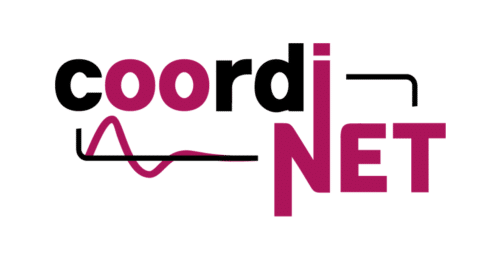CoordiNet

The CoordiNet project concluded its activities in June 2022. On this page, you can discover its results and key learnings.
The core responsibility of Distribution System Operators (DSOs) to ensure a reliable and secure provision of electricity is challenged by the simultaneous shift to distributed and renewable energy generation. Additionally, end-consumers are becoming central active participants in the energy system and therefore in the energy transition. The management of such an increasingly complex power system calls for increasingly coordinated action between DSOs and Transmission System Operators (TSOs) for the procurement of flexibility for grid services and the efficient and effective operation of electricity networks.
The purpose of the CoordiNet project was to establish different TSO-DSO-consumer coordination schemes to demonstrate how collaboration between all stakeholders could remove existing barriers to flexibility market participation for customers and small market players connected to distribution networks.
CoordiNet identified a set of grid services and defined a set of products characterized by a standardized list of attributes for each of them. Several TSO-DSO-consumer coordination schemes were introduced according to four dimensions: system location of flexibility needs, primary buyer of flexibility, number of market layers, and direct access of TSOs to flexibility sources located at the distribution level. The complete set of proposed coordination schemes and standardised products were tested in three large-scale demonstration sites located in Spain, Sweden, and Greece.
The analysis of the lessons learnt from the demos highlighted how local differences, different regulatory frameworks, and different market actors and maturity levels influence the most appropriate choice for a coordination scheme at the national level, implying that there is no one-size-fits-all solution.
Thus, harmonisation and replication of best practices at the EU level are possible, once the remaining regulatory, market, technological and social barriers are overcome. Building upon the conclusions of the project, a five-step Roadmap Towards a New Market Design was presented to provide recommendations for the establishment and future scale-up and replication of flexibility markets in Europe.

Objectives
The CoordiNet project focused on three core objectives:
-
- Contributing to a smart, secure, and more resilient energy system through demonstrating cost-efficient model(s) for electricity network ancillary services that can be scaled up to include networks operated by other TSOs and DSOs, that will be replicable across the EU energy system, and providing the foundations for the further implementation of the already approved and future network codes, particularly on demand-response and storage. And consequently
-
- Opening significant new revenue streams for consumers and generators to provide grid services, and
-
- Increasing the share of RES in the electricity system.
E.DSO and DSOs
The pilots of CoordiNet provided valuable input to regulatory and technical innovation toward the establishment of harmonized flexibility markets in Europe.
The Spanish demo, led by e-distribución and Iberdrola Distribución Eléctrica, tested local and common flexibility markets and offered an example for increasingly automatized and digitalized TSO-DSO coordination, with mass deployment of sensors on the low voltage side of secondary substations. The demo results contributed to the proposal for implementing regulatory sandboxes fostering the establishment of flexibility markets at the national level.
The Swedish demo, led by Vattenfall Eldistribution and E.ON Energidistribution, set up three open calls for flexibility services for congestion management, avoiding renewables’ curtailment and achieving remarkable participation from flexibility source providers and independent aggregators. The learnings from the demo have been incorporated into the business operation of both DSOs with the implementation of the sthlmflex and Effekthandel Väst markets.
The Greek demo, led by HEDNO, integrated various flexibility sources, ranging from wind turbines to household demand response, to solve overvoltage and congestion problems arising in the Mesogia area and the island of Kefalonia. The pilot demonstrated how the tools and solution developed by CoordiNet can relieve grid constraints by empowering consumers with a more active role in the management of the power system.
E.DSO contributed to the dissemination of the lessons learnt from the project activities and demonstration campaigns through the organisation of a Stakeholder Forum and a Final Conference in Brussels. E.DSO further led the coordination of the CoordiNet project with other EU-wide DSO-TSO initiatives, like its publication of a joint position paper on “Recommendations Towards Harmonized European Flexibility Markets”.
More Information
-
- Joint CoordiNet – INTERRFACE position paper on “Recommendations Towards Harmonized European Flexibility Markets”
Contact: projects@edsoforsmartgrids.eu


